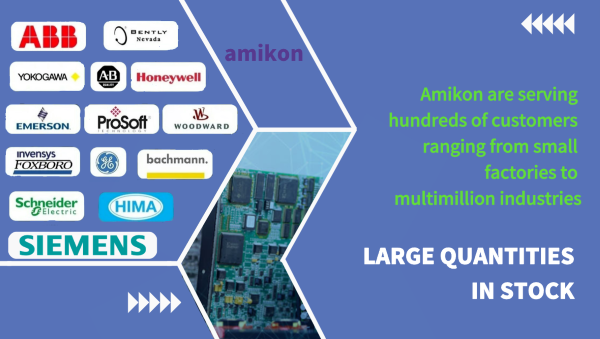Aug

In the rapidly evolving world of industrial automation, Programmable Logic Controllers (PLCs) play a critical role in controlling and automating machinery and processes. As industries become more complex and technology advances, the demand for skilled PLC technicians has surged. Proper training and certification are essential for ensuring that technicians can meet industry standards and handle the sophisticated equipment used in modern automation. This blog explores the various training and certification programs available for PLC technicians, highlighting their importance in maintaining industry efficiency and safety.
PLC technician training programs are designed to equip individuals with the necessary skills and knowledge to operate, maintain, and troubleshoot PLC systems. These programs typically cover a wide range of topics, including PLC fundamentals, programming, troubleshooting, and maintenance. Training can be obtained through various avenues, including technical schools, community colleges, online courses, and manufacturer-specific training programs.
Key Components of PLC Technician Training:
1.PLC Fundamentals: Understanding the basic principles of PLCs, including their architecture, components, and how they operate within an automation system.
2.Programming Languages: Learning the various programming languages used for PLCs, such as Ladder Logic, Structured Text, and Function Block Diagrams.
3.System Integration: Training on how to integrate PLCs with other industrial systems and networks, ensuring seamless operation and communication.
4.Troubleshooting Techniques: Developing skills to diagnose and resolve issues that may arise in PLC systems, minimizing downtime and maintaining operational efficiency.
5.Safety Protocols: Emphasizing the importance of safety in working with high-voltage equipment and adhering to industry safety standards and regulations.
Certification serves as a formal recognition of a technician’s skills and knowledge in PLC technology. Several reputable organizations offer certification programs, each with its own set of requirements and benefits. Below are some of the most recognized certification programs in the industry:
1. Siemens PLC Certification
Siemens offers a range of certification programs for its PLC systems, including the S7-1200 and S7-1500 series. The Siemens PLC certification focuses on programming, configuring, and troubleshooting Siemens PLCs.
2. Rockwell Automation (Allen-Bradley) Certification
Rockwell Automation provides certification for its Allen-Bradley PLCs, such as the ControlLogix and CompactLogix series. The certification includes training on programming, system integration, and advanced troubleshooting.
3. National Institute for Certification in Engineering Technologies (NICET)
NICET offers certification for various levels of industrial control systems, including PLCs. NICET’s certification programs are recognized across multiple industries and provide a comprehensive assessment of a technician’s expertise.
4. International Society of Automation (ISA) Certification
ISA provides several certifications, including the Certified Control Systems Technician (CCST) program. This certification is designed for technicians who work with control systems, including PLCs, and emphasizes a broad understanding of automation technology.
Skilled PLC technicians are crucial to the successful operation of modern industrial systems. Their expertise ensures that automation systems are programmed correctly, maintained efficiently, and troubleshot effectively. Here’s why investing in skilled PLC technicians is vital:
1.Efficiency and Productivity: Skilled technicians can optimize PLC programming and system integration, leading to improved efficiency and productivity in industrial processes.
2.Minimized Downtime: Properly trained technicians can quickly diagnose and resolve issues, minimizing downtime and reducing the impact on production schedules.
3.Safety Compliance: Technicians with proper training are more likely to adhere to safety protocols, ensuring safe operation of high-voltage equipment and reducing the risk of accidents.
4.Adaptability to New Technologies: As technology evolves, skilled technicians are better equipped to adapt to new PLC systems and programming techniques, keeping pace with industry advancements.
5.Cost Savings: Investing in training and certification can lead to long-term cost savings by reducing the need for external support and minimizing costly downtime.
Training and certification programs are essential for developing skilled PLC technicians who can meet the demands of modern industrial automation. These programs provide the knowledge and skills necessary to operate, maintain, and troubleshoot PLC systems effectively. As industries continue to advance and technology evolves, the role of skilled PLC technicians becomes increasingly important. By investing in comprehensive training and certification, organizations can ensure they have the expertise needed to maintain efficient, safe, and productive automation systems.
Table: Overview of Popular PLC Certification Programs
|
Certification Program |
Provider |
Focus Areas |
Requirements |
Benefits |
|
Siemens PLC Certification |
Siemens |
Siemens PLC programming, configuration |
Completion of Siemens training courses |
Specialized knowledge of Siemens PLC systems |
|
Rockwell Automation Certification |
Rockwell Automation |
Allen-Bradley PLC programming, system integration |
Completion of Rockwell training courses |
Expertise in Allen-Bradley PLC systems |
|
NICET |
National Institute for Certification in Engineering Technologies |
Industrial control systems, PLCs |
Experience and examination |
Broad industry recognition, comprehensive assessment |
|
ISA CCST |
International Society of Automation |
Control systems, PLCs |
Examination and practical experience |
Broad control systems knowledge, industry certification |
Investing in training and certification ensures that PLC technicians are well-prepared to meet the challenges of modern industrial automation and contribute to the success of their organizations.